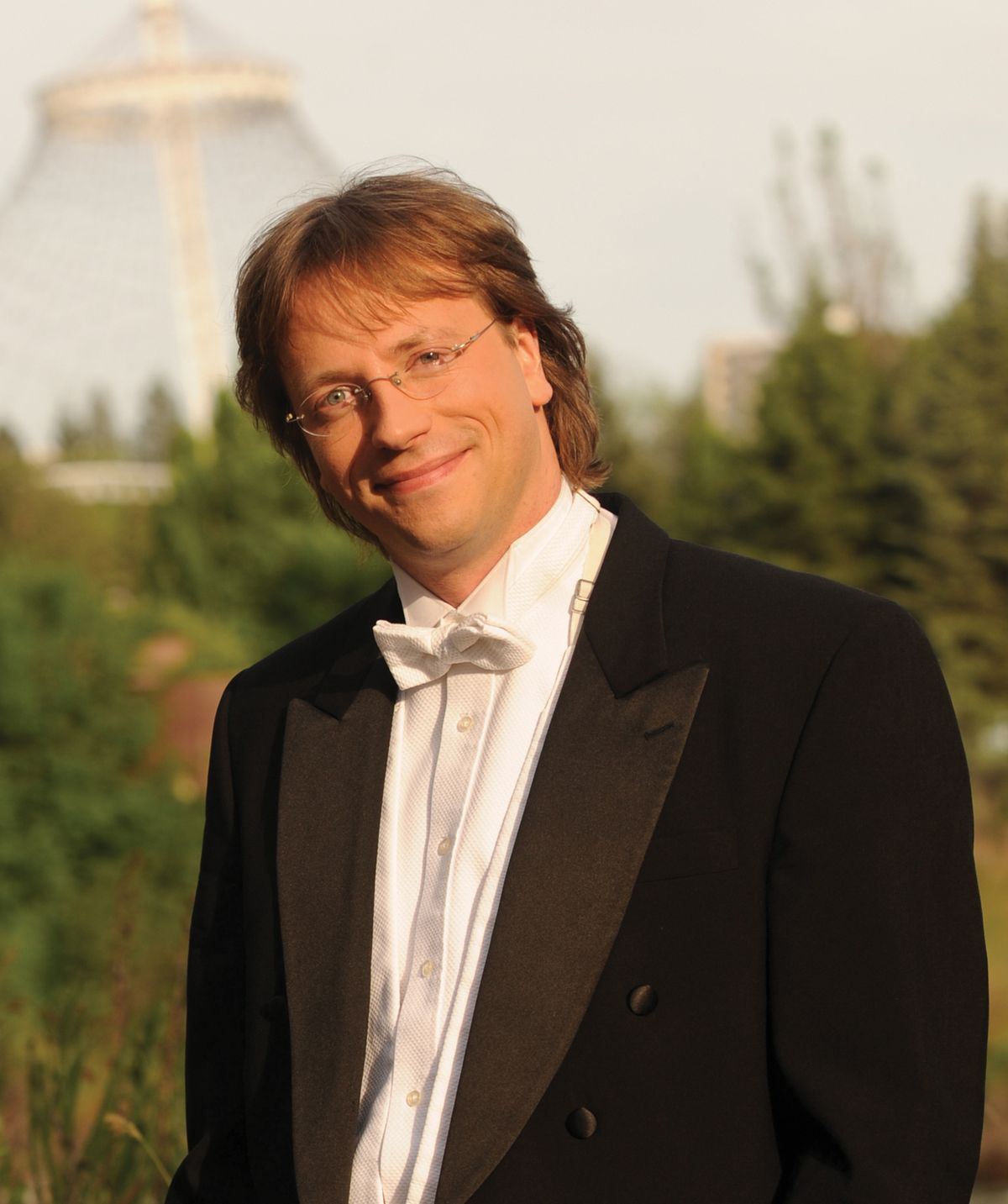Spokane Symphony goes back to Dvorak
Preu eager for Kirshbaum to return concerto back to origins

Eckart Preu has given himself a present: a fresh, new score of the Dvorak Cello Concerto.
Of course, the Spokane Symphony already had a score of the piece. Preu himself conducted it in 2009, featuring the brilliant young cellist Alisa Weilerstein.
Many conductors treasure their scores, covering their pages with modifications. Preu, on the contrary, is elated to be unencumbered by his old thoughts and decisions. He wants to “start from scratch,” to be able to see what Dvorak has to say to him and his orchestra today.
This is why he is so excited that Ralph Kirshbaum, world renowned as both a performing artist and as a teacher, will be his partner in performances of the piece at the Martin Woldson Theatre at the Fox on Saturday and Sunday.
Recalling the performance with Weilerstein as “a fantastic experience, but a youthful, stormy, heated exchange,” Preu feels that having an artist of Kirshbaum’s seasoned artistry and insight is bound to “bring special moments to an already special piece.”
Growing up in Tyler, Texas, Kirshbaum was first exposed to the riches of European musical culture by his parents, especially his father, who was also a dedicated teacher.
He credits his father with instilling in him an audacious belief in his own ability to conceive ambitious goals, and go on to achieve them. For example, his father suggested that he take on a few younger children as students – when he was only 9.
His later teachers, Lev Aronson and Aldo Parisot, helped him to develop different aspects of his musicianship: Aronson, the lyrical element (“the soul of my own playing at that time”), and Parisot, the fiery, virtuosic qualities.
“He taught me to view the bow as a paintbrush,” Kirshbaum says.
Later, he drew on the confidence they instilled first to propose and then assume leadership of The Manchester Cello Festival, which grew into one of the world’s most influential musical events.
“It was almost a crusade to show the world at large that there are not just two or three great cellists, but a wealth of talent waiting to be heard,” he says.
Kirshbaum views the Dvorak Concerto as the greatest ever written for the instrument. He values it especially for its many passages of chamber-music transparency, in which the soloist and principal members of the orchestra join in passages of great beauty and tenderness.
He has heard of the quality of the musicians in the Spokane Symphony, and is excited by the prospect of exploring this great work with them.
Closing the program will be Brahms’ First Symphony, one of the pillars of the orchestral repertory.
Preu’s current view – developed since his last, ecstatically received performance in 2005 – is that the piece is a highly personal statement of Brahms’ love for Clara Schumann, the widowed wife of his dear friend and mentor, Robert Schumann.
Although the program’s opening selection, Zoltan Kodaly’s Dances of Galanta, were composed in 1933, they are rooted in the same musical language used by Brahms in his Hungarian Dances, and by Dvorak in his Slavonic Dances.
The results are comparable: music that is tuneful, colorful and brilliant. They are well-chosen as the appetizer for what promises to be a sumptuous feast.